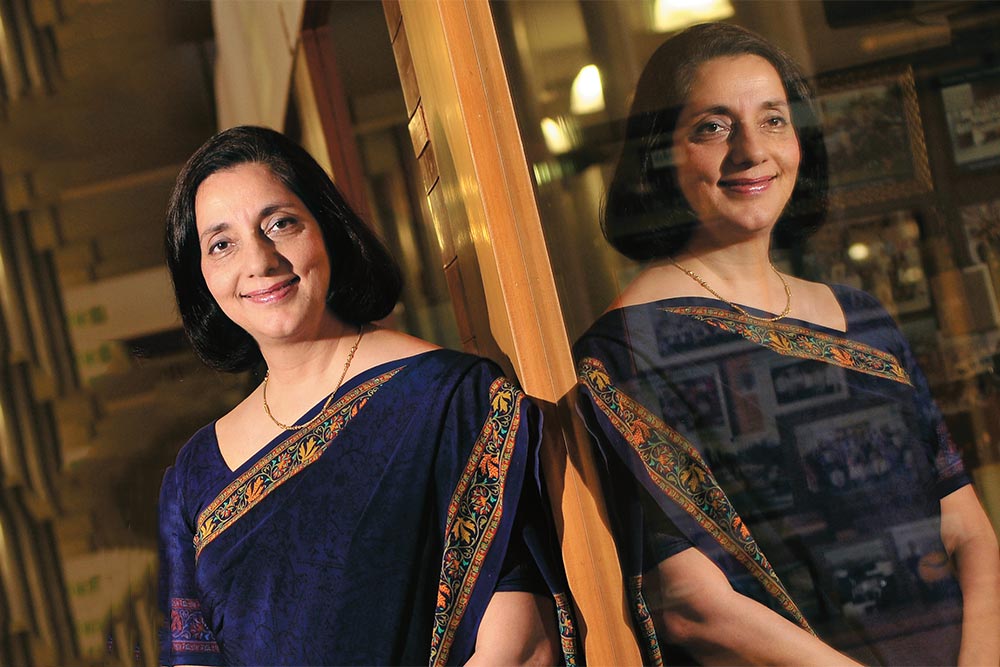A move to politics by the CEO of an international banking chain might be seen as either foolhardy or suicidal by Indian standards, depending on whom you ask. But that didn’t deter Royal Bank of Scotland’s (RBS) India CEO Meera Sanyal from relinquishing her post on March 31, 2013, to prepare for contesting the 2014 Lok Sabha elections as an independent candidate. The 51-year-old career banker, who continues to be chairperson of India services at RBS, plans to give up all work responsibilities by election time to fully commit herself to public life.
And this is not her maiden outing in the political sphere, either. With colleagues and family standing resolutely in support, Sanyal had contested the 2009 general elections from South Mumbai as an independent candidate against crowd favourite Milind Deora. She was routed thoroughly, polling just about 10,000 votes, but she hasn’t given up on her mission to push the liberal agenda in India. “I learnt a great deal from the experience; most importantly, that it is possible to participate constructively in the democratic process and make an impact,” says Sanyal.
Busy working with a team of professionals — comprising relatives, friends and even complete strangers — on her strategy for 2014, Sanyal discusses her motivations to join politics full-time. “The catalyst was the 26/11 terrorist attack on Mumbai. As Indians, we are very good at analysing and criticising matters, so I decided that it was time, at least for me, to stop doing that and instead participate in the process,” she says.
“In 2009, my competitors had mounted a strong campaign discrediting independent candidates. That might have cost me some votes, but the public has lost faith in political parties as well. I believe independent candidates will have an even more important part to play in 2014, as they don’t have to toe any party’s line. Also, the public has understood that independent candidates can also make a difference,” Sanyal adds.
Thanks to stints at Grindlays and ABN Amro (taken over by RBS) in the past, Sanyal has a wealth of experiences, both positive and negative, to draw from. She led ABN Amro into the world of investment banking in India at the dawn of the liberalisation era and worked in Singapore at the height of the Asian crisis. “I’ve realised that the lessons you learn during a downturn can be more powerful on a personal, professional and national level than those during an upturn,” she says.
Sanyal’s already made a start in her public service agenda. She is busy with social projects providing sustainable livelihoods to marginalised women across 15 states, also contributing her expertise to NGOs such as Pradan and Right to Play. She mentors young students through leadership group AIESEC, which she helped set up in India in 1980, when she was just 19. A member of LiberalsIndia, Sanyal also maintains an active presence on the social networking sphere.
So, what’s her message to supporters? “By standing for election, I am taking a stand against the corruption, criminalisation and communalism that dominate politics at present. I am participating in the process so that young India knows that it is possible for people with ideals and integrity to stand for the elections — and win.”











